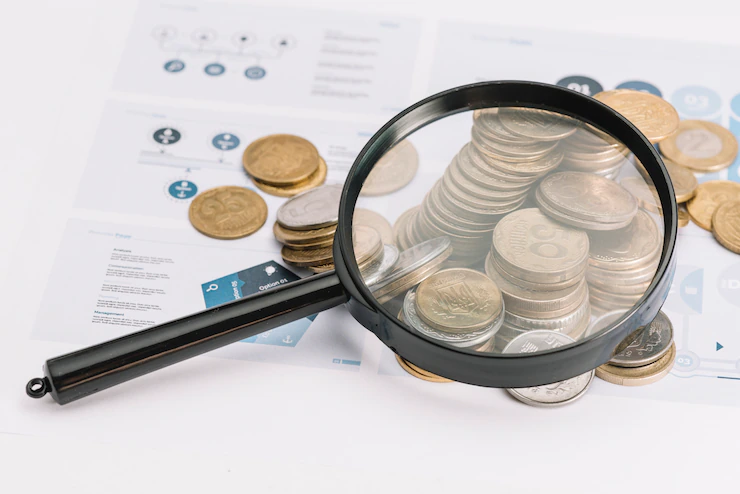Financial Instruments Which Help You Save Tax
4 Mins Read
Published on: 30 November 2022
Last Updated on: 16 September 2024

toc impalement
In today’s economy, there are different factors that can cause a fluctuation in inflation.
This has a direct impact on the cost of living, with the prices of food and basic facilities increasing. While your salary might take care of the increase in expenses, it is better to invest a part of your financial instruments and their income.
Investing allows you to grow your wealth and create a financial safety net for you and your loved ones. However, before you invest, it is important to know which instruments allow you to enjoy tax deductions.
Let’s see first what is the definition of a financial instrument.
What Are Financial Instruments?

A Financial instrument is a monetary contract between two parties. They can be created and traded. Or modified. Even they can be in cash form as well. The evidence of an ownership interest is an entity or a contractual right for receiving and delivering the form of cheque, debt, and equity.
The common type of financial instruments is stocks, bonds, and security cheques.
The income tax calculator assists you by giving you an idea about the taxes that could be levied on your investment, hence educating you about it. Here are some of the financial instruments which allow tax deductions.
Types Of Tax-Saving Instruments

There are various types of financial instruments. Some of our listed financial instruments that allow you to save the tax:
1. Unit Linked Insurance Plan (ULIP)
ULIPs are a type of financial instruments life insurance policy that provides dual benefits of investment and life insurance under the same policy.
This policy is for those who are focusing on wealth gain for their and their loved one’s future. In the old tax regime, the premium payment limit eligible for tax deduction was up to Rs.1.5 Lakhs under Section 80C.
Under the new tax regime, plans purchased before or on 1 March 2021 are eligible for a tax deduction on premium payments of up to Rs. 2.5 Lakhs under Section 10(10D).
The maturity benefits and death benefits are also eligible for tax deduction under Section 10(10D) of the Income Tax Act. The benefits provided under the plan are subject to terms and conditions being met.
2. Equity Linked Saving Scheme (ELSS)
ELSS are the types of financial instruments and mutual funds. When you invest in ELSS, your money will be invested in equity funds, which provide returns.
However, do always keep in mind that the equity market is pretty volatile in nature, and fluctuations could impact your returns.
Under Section Income Tax Act 80C, ELSS are eligible for tax deduction up to the mark of Rs.1.5 Lakhs.
3. National Pension Scheme (NPS)
This scheme is beneficial for your retirement planning. The financial instruments income acts as a pension, which allows you to enjoy your retirement.
As the money comes from income, you will get a tax deduction for up to 10% of your salary, i.e., basic pay plus dearness allowance under Section 80CCD(1) of the Income Tax Act.
This deduction comes within the deduction limit of Rs1.5 Lakhs under Section 80CCE of the Income Tax Act.
4. Life Insurance
A life insurance policy financially compensates your family if something unfortunate were to happen to you during the policy term.
When you purchase this financial instruments policy, you are eligible for a tax deduction on two aspects of the policy.
The first is the premium, which is eligible for a tax deduction for a limit of up to Rs.1.5 Lakhs under Section 80C Income Tax Act. The death benefit, along with the maturity benefit, is eligible for the tax deduction under Section 10(10D).
5. Public Provident Fund (PPF)
PPFs are one of the safest investment options that provide nominal returns in the long haul.
Preferred by salaried individuals, this fund allows them to invest minimal amounts for a longer duration. Investments of up to Rs. 1.5 Lakhs are eligible for tax deduction under Section 80C.
6. National Saving Certificates (NSC)
This fixed deposit scheme is a type of financial instrument that can be availed at a post office. The returns are a bit low compared to the normal fixed deposits. Due to the money being invested in the post office, the risk factor is minimal when it comes to the safety of your investment.
Investments of up to Rs.1.5 Lakhs are eligible for tax deduction under Income Tax Act’s Section 80C.
Conclusion
As you can see, these financial instruments allow tax deductions under different types of ITR. Make sure you choose the instrument based on your requirement. If you wish to get more information about such instruments or advance tax, you can visit your nearest tax advisor.
Additional:


















Comments Are Closed For This Article